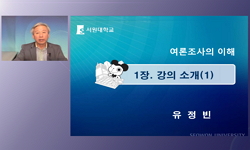본 연구는 미국 외교정책 전통 중 하나인 고립주의를 수용하는 유권자의 태도에 주목한다. 2020년 전미선거조사(ANES) 데이터를 활용하여, 미국 유권자의 타국 위협 인식이 고립주의적 성향에 ...
http://chineseinput.net/에서 pinyin(병음)방식으로 중국어를 변환할 수 있습니다.
변환된 중국어를 복사하여 사용하시면 됩니다.
- 中文 을 입력하시려면 zhongwen을 입력하시고 space를누르시면됩니다.
- 北京 을 입력하시려면 beijing을 입력하시고 space를 누르시면 됩니다.

미국 고립주의의 두 얼굴: 중국과 러시아 위협 인식에 따른 상반된 외교 태도 = Two Faces of American Isolationism: Foreign Policy Attitudes Shaped by Perceived Threats from China and Russia
한글로보기https://www.riss.kr/link?id=A109797268
- 저자
- 발행기관
- 학술지명
- 권호사항
-
발행연도
2025
-
작성언어
Korean
-
주제어
Isolationism ; Threat Perception ; Foreign Policy ; Public Opinion ; Political Ideology ; United States ; 고립주의 ; 위협 인식 ; 외교정책 ; 여론 ; 정치 성향 ; 미국
-
등재정보
KCI등재
-
자료형태
학술저널
- 발행기관 URL
-
수록면
1-30(30쪽)
- 제공처
-
0
상세조회 -
0
다운로드
부가정보
국문 초록 (Abstract)
본 연구는 미국 외교정책 전통 중 하나인 고립주의를 수용하는 유권자의 태도에 주목한다. 2020년 전미선거조사(ANES) 데이터를 활용하여, 미국 유권자의 타국 위협 인식이 고립주의적 성향에 어떤 영향을 미치는지 분석하였다. 특히 중국과 러시아에 대한 위협 인식이 유권자의 외교정책 선호에 어떻게 반영되는지 살펴보였다. 분석 결과, 중국에 대한 위협 인식은 고립주의 성향을 강화하는 반면, 러시아의 위협 인식은 미국의 군사 개입을 선호하는 경향과 상관관계를 맺었다. 이러한 상반된 결과는 미국 유권자 차원에서 중국과 러시아에 대한 위협 인식의 내용이 다름을 시사해 준다. 즉, 군사안보 영역에서 중국은 잠재적인 도전자로, 러시아는 즉각적인 위협으로 인식된다는 해석이 가능하다. 추가적인 분석 결과, 진보 성향의 설문 응답자의 경우 중도 성향의 응답자 대비, 위협 인식이 고립주의 지지에 주는 영향이 유의미하게 낮음을 알 수 있었다. 이는 정치 성향과는 무관할 것이라 예상되는 외교정책 태도에서도 보수-진보 간 차이가 있음을 의미한다.
다국어 초록 (Multilingual Abstract)
This study examines public opinion of voters who embrace isolationism, one of the traditional pillars of American foreign policy. Utilizing data from the 2020 American National Election Study (ANES), the present study analyzes how American voters’ p...
This study examines public opinion of voters who embrace isolationism, one of the traditional pillars of American foreign policy. Utilizing data from the 2020 American National Election Study (ANES), the present study analyzes how American voters’ perceptions of foreign threats influence their isolationist tendencies. Specifically, the study examines how perceived threats from China and Russia are reflected in voters’ foreign policy preferences. The analysis reveals that perceiving China as a threat tends to strengthen isolationist tendencies, while perceiving Russia as a threat correlates with a preference for U.S. military intervention. These contrasting outcomes suggest that American voters perceive the nature of threats from China and Russia differently. In other words, in the realm of military security, China is seen as a potential challenger, whereas Russia is regarded as an immediate threat. Additional analysis shows that among ideologically liberal respondents, the influence of threat perception on support for isolationism is significantly weaker compared to moderate respondents. This indicates a partisan divide in foreign policy attitudes, even in areas presumed to be unrelated to political ideology.
동일학술지(권/호) 다른 논문
-
우크라이나 문제에 대한 존 미어샤이머의 입장과 그의 공격적 현실주의 간의 관계: 공격적 현실주의 ‘이론’과 ‘이론 체계’
- 경남대학교 극동문제연구소
- 백석훈
- 2025
- KCI등재
-
한국의 중위 민주주의 함정: 정당 탈제도화와 초양극화의 정치적 귀결
- 경남대학교 극동문제연구소
- 김정
- 2025
- KCI등재
-
러시아-우크라이나 전쟁과 안보딜레마의 이중 연쇄효과: 북러협력과 한미일 안보협력의 동학
- 경남대학교 극동문제연구소
- 안정은
- 2025
- KCI등재
-
- 경남대학교 극동문제연구소
- 이경수
- 2025
- KCI등재




 KCI
KCI






